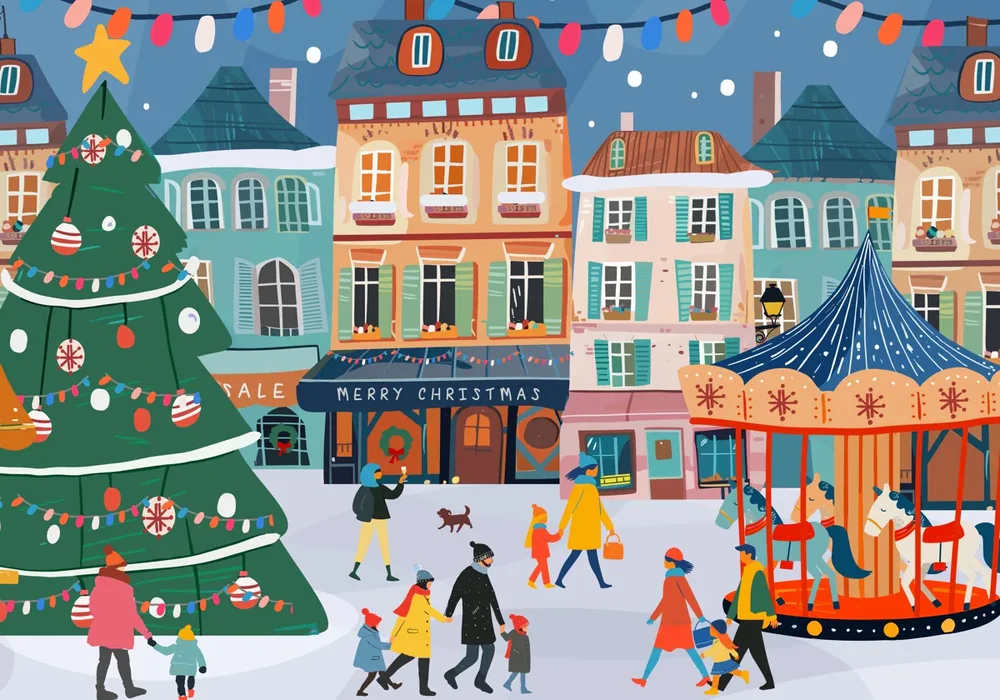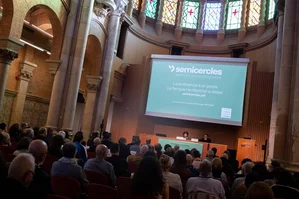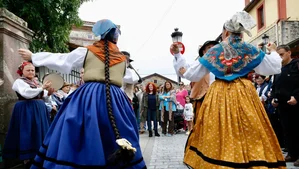Celebrating Christmas in Spain: A Festive Blend of Tradition and Joy

As the holiday season unfolds, Spain transforms into a vibrant tapestry of traditions, family gatherings, and delicious cuisine, making it a magical time for expats and locals alike to experience the unique Spanish Christmas culture.
Christmas Eve: The Heart of Celebrations
Christmas Eve, or Nochebuena, is the pinnacle of Spanish Christmas celebrations. Families gather late in the evening for an elaborate dinner, often featuring traditional dishes such as roast lamb, seafood platters, and the beloved turrón, a nougat-like sweet made from almonds and honey. This feast is a time for family bonding, with streets and bars deserted as the action moves indoors[2][3][4].
Midnight Mass: A Time for Reflection
Following the lavish dinner, many families attend Misa del Gallo (Midnight Mass), a special church service that commemorates the birth of Jesus Christ. This service, held in Catholic churches across Spain, is named after the legend that a rooster was the first animal to announce the birth of Christ, crowing at midnight on the holy night. The mass is a solemn and meaningful event, often accompanied by massive bonfires outside the church in some regions[1][3][5].
Nativity Scenes: A Cornerstone of Tradition
Nativity scenes, or belénes, are central to Spanish Christmas decorations. These elaborate displays, often depicting not just the Holy Family but entire villages with detailed settings, are a staple in many Spanish homes and public spaces. The tradition of creating these scenes dates back to the 18th century and was imported from Naples. Many towns host contests for the best belén, making it a fun and competitive part of the holiday season[1][4][5].
Unique Traditions: From Lotteries to Pooping Logs
One of the most iconic Spanish Christmas traditions is the Lotería de Navidad, or Christmas Lottery, held every December 22 since 1812. Known for its communal spirit, tickets are often shared among families, friends, and even entire towns, with the jackpot affectionately called El Gordo (‘The Fat One’). This lottery is not just about winning money but also about hope, tradition, and togetherness[4].
In Catalonia, a quirky tradition stands out: Caga Tió, the pooping log. This log, adorned with a face and legs, is kept under a blanket and is smacked with sticks by children on Christmas Day while singing a special song. Once the song concludes, the log is uncovered to reveal the sweets and treats it has "produced"[5].
New Year's Eve: Eating Grapes for Good Luck
As Christmas transitions into the New Year, Spaniards have a unique way of welcoming Año Nuevo. At the stroke of midnight on New Year’s Eve, people eat 12 grapes, one for each chime of the clock, in a tradition known as las doce uvas. This ritual is believed to bring good luck for the year ahead and is a fun, though challenging, tradition to follow[2][4][5].
Three Kings' Day: The Final Celebration
The Spanish Christmas season culminates on January 6th, known as Three Kings' Day or Día de Reyes. On the evening of January 5th, colorful parades called Cabalgatas fill the streets, with the Three Wise Men tossing sweets and candy to excited children. The next morning, children wake up to find gifts left by the Three Kings, marking the final celebration of the holiday season[4][5].
In Spain, the holiday season is a time of deep spiritual roots, vibrant community celebrations, and unique cultural customs that make it a truly special experience for both locals and expats. Whether you are attending a midnight mass, enjoying a traditional Nochebuena dinner, or participating in the grape-eating ritual on New Year’s Eve, Spain offers a festive and joyful atmosphere that is sure to leave lasting memories. ¡Feliz Navidad
Related Stories

Plataforma per la Llengua Highlights the Bond Between Language and Identity
Plataforma per la Llengua champions the Catalan language as key to identity in Catalonia, countering threats to the region's linguistic heritage.

Community Honors Rural Women on International Day of Rural Women
Cabezón de la Sal honors rural women with "Sembrando futuro" theme on International Day of Rural Women, celebrating their pivotal role in community and agriculture.

Traditional Nocturnal Ascent to Peña Cabarga Returns
Cantabria's cherished nocturnal hike, "Subida Nocturna a Peña Cabarga," returns this October, offering a unique journey through stunning landscapes under the stars.

New Edition of the Ruta del Misterio: Unveiling Paranormal Phenomena in Torrelavega
Torrelavega's Ruta del Misterio returns this October, promising a thrilling exploration of the paranormal across 10 enigmatic stops.

Horoscope Insights for Expats in Spain: Sunday, October 20, 2024
Expats in Spain, especially Scorpios, may face relationship challenges on October 20, 2024. Tips on navigating social circles and romantic friction included.